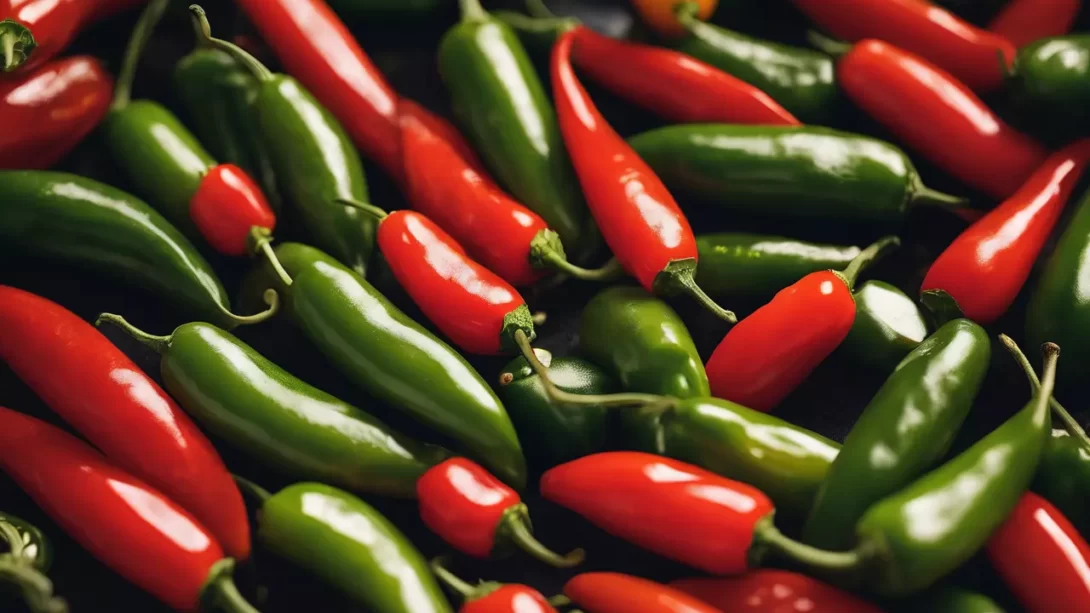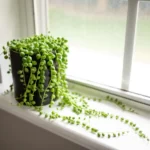Serrano peppers, known for their vibrant flavor and moderate heat, are a staple in many cuisines, particularly in Mexican cooking. They add a spicy kick to dishes, from salsas to marinades. Given their popularity, a common question arises: can you freeze Serrano peppers to preserve their freshness and flavor? Freezing is a practical method to extend the shelf life of these peppers while maintaining their quality. This guide will explore the process of freezing Serrano peppers, ensuring that you can enjoy their zestful taste year-round.
Serrano Peppers
Serrano peppers are small, bright green or red chilies, hotter than jalapeños but milder than habaneros. They are known for their crisp texture and the sharp, fresh heat they bring to dishes. Serranos are used in various culinary applications, from raw in salsas and salads to cooked in sauces and stews. Proper storage is crucial for preserving their flavor and heat. Typically, Serrano peppers remain fresh for a week or two when refrigerated, but freezing can significantly extend this period, making it an excellent option for those who want to keep these peppers on hand.
Benefits of Freezing Serrano Peppers
Freezing Serrano peppers offers several benefits. It retains the peppers’ vibrant flavor and spiciness, ensuring that they are ready for use in cooking at any time. The nutritional value, including vitamins and antioxidants, is also largely preserved when freezing. This method is ideal for gardeners who harvest more peppers than they can immediately use or for those who like to buy in bulk. Freezing Serrano peppers is a convenient way to reduce food waste and have a constant supply of fresh, spicy flavor for various recipes.
Preparing Serrano Peppers for Freezing
Proper preparation is key to successfully freezing Serrano peppers. Start by selecting fresh, ripe peppers without any blemishes or soft spots. Wash them thoroughly under cold water to remove any dirt or pesticides. After washing, dry the peppers completely with a clean towel or paper towel. This step is crucial to prevent ice crystal formation during freezing, which can affect texture and flavor. You can choose to freeze the peppers whole, or slice them according to your preference. If you opt for slicing, remove the stems and seeds if desired, keeping in mind that the seeds contribute to the heat of the peppers.
Freezing Techniques for Serrano Peppers
There are several methods for freezing Serrano peppers, depending on how you plan to use them.
- Freezing Whole: This is the simplest method. Place the whole, dry peppers in a single layer on a baking sheet. Freeze them until solid to prevent the peppers from sticking together, and then transfer them to airtight freezer bags or containers.
- Sliced or Diced: If you prefer pre-cut peppers for convenience, slice or dice the peppers as needed. Flash freeze them on a baking sheet before transferring to freezer bags. This method is ideal for adding peppers directly to dishes while cooking.
- Pureed: For those who frequently use peppers in sauces or marinades, pureeing and freezing Serrano peppers is a great option. Puree the peppers using a blender or food processor, then freeze the puree in ice cube trays. Once frozen, transfer the cubes to freezer bags.
In all methods, ensure to label the freezer bags with the date, so you keep track of how long the peppers have been stored.
Best Practices for Packaging and Storing Peppers in the Freezer
Proper packaging is crucial to protect the flavor and quality of the peppers. Use heavy-duty freezer bags or airtight containers to prevent freezer burn. Squeeze out as much air as possible before sealing the bags to keep the peppers fresh. Organize the bags or containers in the freezer to allow for efficient use of space and easy access. These practices will help maintain the quality of your Serrano peppers for several months.
Thawing and Using Frozen Serrano Peppers
When you’re ready to use your frozen Serrano peppers, the thawing process is straightforward. For most cooking applications, you can actually use the peppers directly from the freezer without thawing, especially when adding them to soups, stews, or sautés. If you need to thaw them, place the desired amount in the refrigerator for a few hours or at room temperature for a shorter period. It’s important to note that once thawed, the peppers might be a bit softer than fresh ones, which is perfectly normal and won’t affect their flavor or heat in cooked dishes.
Potential Drawbacks and Considerations
One potential drawback of freezing Serrano peppers is the change in texture. While the flavor and spiciness remain intact, frozen and then thawed peppers tend to be softer than fresh ones and may not be suitable for recipes where a crisp texture is desired, such as fresh salsas or salads. Additionally, over a long period, the quality of the peppers may gradually decrease in the freezer. To enjoy the best quality, it’s recommended to use the frozen peppers within six months.
Conclusion
Freezing Serrano peppers is an effective way to preserve their spicy flavor and nutritional benefits for extended periods. By following the proper preparation and freezing techniques, you can ensure that these versatile peppers are readily available for your culinary creations, regardless of the season. While there may be some changes in texture upon thawing, the convenience and benefits of having frozen Serrano peppers on hand outweigh this minor drawback. With these tips, you can confidently add a burst of flavor and heat to your dishes, using your well-preserved Serrano peppers.



